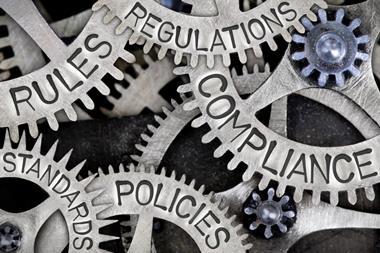Finally, after the best part of eight years in the making, on 3 November 2005, the DTI published the Company Law Reform Bill. It followed hard on the heels of the Companies (Audit, Investigations and Community Enterprise) Act 2005 (CAICE), one of the purposes of which was to address the DTI's concern that potential directors, particularly non-executives, were not accepting appointments because of the fear of the liabilities concomitant with that office. Given this concern and the importance to the economy of having strong, well-managed companies, you might expect the new Bill would contain further comfort for directors. Prepare to be disappointed.
Since the DTI began its review of Company Law in 1998, the UK directorial landscape has changed dramatically. We have had Higgs, Smith, Turnbull and Myners' reports (to name but a few), revised combined codes and piecemeal amendments by legislation. More high-profile, however, and almost certainly more influential, has been the pursuit by Equitable Life of 15 of its former directors, both executive and non-executive, for allegedly failing in the exercise of their duties. Notwithstanding that Equitable has now dropped most of its claims, that litigation has highlighted directors' vulnerability to being sued by the companies they serve.
Will the new law (expected to come into force during 2007) make the prospective director feel more comfortable about accepting an appointment? In my view, almost certainly not. Judging by the newspaper headlines, I am not alone.'Investors win powers to sue,' they say, 'Directors on guard against legal action' and 'Reforms pile pressure on directors'. Although many of the new provisions do no more than codify existing law, increased scrutiny of directors can only lead to an increase in the threat of D&O claims.
The two elements of the Bill which are expected to have greatest impact on directors' exposures are the statement of directors' duties and the revised procedures which shareholders can use to hold directors to account.
Statement of duties
The duties owed by a director are not currently to be found in any statute or judgment. The Bill rectifies this by providing a checklist (the altruists will say it is for the directors; the cynics will say for the potential claimant). A director must act within his powers, promote the success of the company, exercise independent judgment and reasonable care, skill and diligence, avoid conflicts of interest; not accept benefits from third parties and declare interests in proposed transactions. According to the DTI, none of this is new, and indeed much of it has a familiar ring. However, the current requirement to act in the best interests of the company has mutated in the Bill into the overriding duty 'to promote the success of the company'. This, the Bill goes on to explain, extends not just to considering the shareholders' interests, but also those of employees, suppliers, customers, the community, the environment and the need for the company to maintain a reputation for high standards of business conduct. That is an interesting list of stakeholders and one which, I suspect, most directors would not normally contemplate when taking management decisions.
Execs vs non-execs
This roll-call of duties is all very well for the executives, but what about the non-executives, who are removed from day-today business decisions?
Does a different standard apply to them? We all know a company with strong non-executive directors will perform better than one composed entirely of insiders. Nevertheless, despite a recognition by many commentators (including the judge in an early episode of the Equitable litigation), that in practice the duty owed to a company by an executive director is different from that owed by a non-executive, there is no legal difference between the two.
Try a word search on all 800-odd sections of the new Bill, its explanatory notes and the DTI's guidance to its key provisions and you will not find a single occurrence of the phrase 'non-executive director'. As far as the law is concerned, they do not exist. These duties are the minimum for any director. An executive will have additional obligations imposed on him expressly by his service contract and implicitly by his greater knowledge of the company's business. This is not the place to go into detail, but if you think being a non-executive is an easy life, just have a look at the Combined Code's suggestions for a non-executive's responsibilities.
Should the DTI have established a lower standard of care for non-executives?
They clearly had in mind the possibility of differential treatment when drafting CAICE, because the consultation document which preceded its enactment asked: 'Might it be appropriate to permit companies to indemnify non-executive directors even in circumstances where this is not considered appropriate in respect of executive directors?'
Apparently the majority of responses were against such a distinction as it would undermine the UK's unitary board system. Sorry non-execs, but you stand or fall with the rest of the board.
New remedies
What then are the sanctions faced by a director who fails to carry out his duties? In fact, they are remarkably similar to those he faces now.
The Bill provides shareholders with a statutory right to bring legal proceedings enforcing the company's rights against its directors: the 'derivative action'. The principle of a derivative action is not new, but until now it has been an obscure and seldom-used common law remedy, rather than a statutory mechanism. In addition the grounds on which a derivative action can be brought have been extended to cover negligence, default, breach of duty and breach of trust, rather than the old grounds of illegality or fraud on the minority shareholders. It is conceivable that a director who acts in breach of duty to his company may now face not only a regulatory sanction, but also a claim from the shareholders to recover any monies paid out by the company in consequence of such breach.
There is some comfort to be had though: the new rules provide, as now, that shareholder claims will result in an award of damages to the company, not the shareholders personally. In addition, such claims can be continued only with the court's permission and then only if the claimant is acting in good faith. The spectre of the US-style securities claims action is still far off.
Has exposure increased?
Will directors be more exposed as a result of these provisions? Yes, but to what degree is uncertain. The fact is that both directors and their detractors will have statutory codes against which to measure performance and precisely formulated statutory remedies in cases of transgression.
It has been suggested the new remedy could be used by institutions or, less satisfactorily, by aggressive short-term investors seeking to bring undue influence on management.
These are not threats to be ignored, but they can be mitigated. We can expect to see directors, in particular, non-executives, increasingly taking independent advice, and, one hopes adopting a thoroughly professional approach to their job. If I were a director, I would take the time to thoroughly familiarise myself with the Combined Code and consider carefully the limits and extent of my D&O cover as well as the stability and reputation of the insurer providing it.
- Guy Williams is a solicitor and manager of financial institutions underwriting at AIG Europe (UK) Ltd. www.aigeurope.co.uk



















